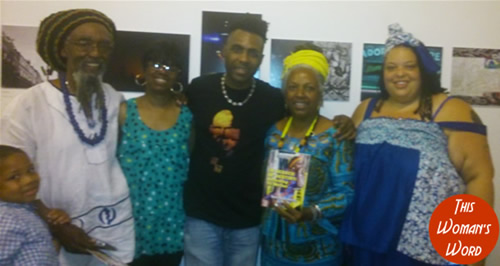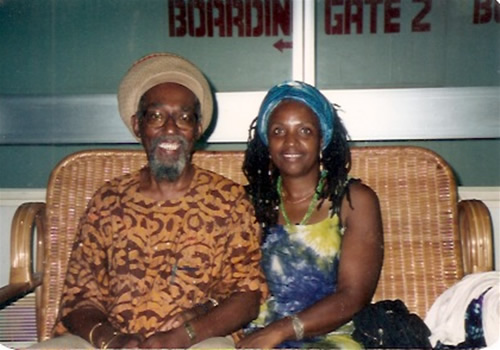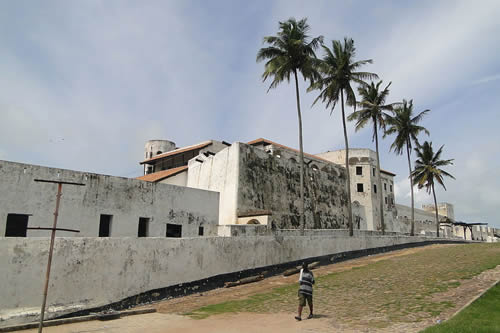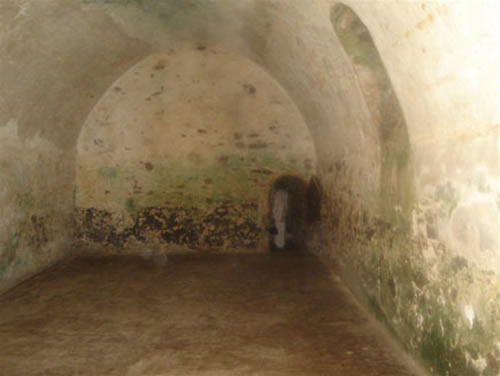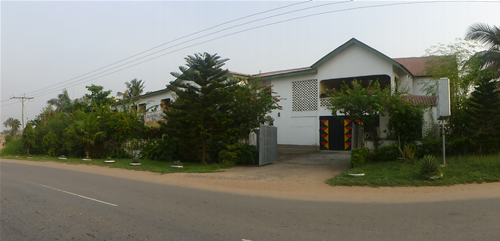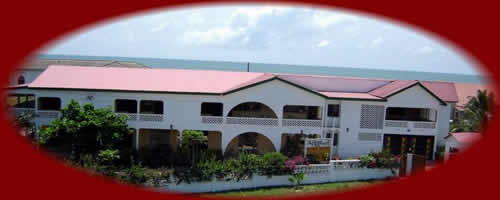An Interview With Sonia Lye-Fook Author of In Search of Destiny: Returning To Mother
Firstly, I have to start this article by thanking my significant other for had he not informed me of Sonia Lye-Fook’s Book Launch on Friday 25th July 14 (you can read my write up of the BIS Publications Book Jam here) I would have been none the wiser and the opportunity to meet and interview this amazing lady would have no doubt passed me by. With that said, I would like to introduce to you all Sonia Aum Shring Lye-Fook, author of her first published book entitled In Search of Destiny: Returning To Mother.
The book title instantly grabbed my attention and upon researching further, I came across her blog site entitled Kissed by An Angel 7. I instantly fell in love with the few entries Sonia had posted as she summarised what her début book was about. I couldn’t help but feel inspired at just how cultured, and well read this lady was. She knew her ancestral background, knew her roots and most importantly her history.
Whilst in attendance of the BIS Summer Book Jam, I eagerly awaited for Sonia’s section to start and when it did, I was mind blown! (like literally).
Never before have I been so captivated by another human speak as a tentatively listened to her talk about her début book with Cindy from BIS Publications regarding her experiences in retiring to Ghana, why it is important that we as black people visit Africa at least once in our lifetime whilst seeking out to find our own truth regarding the significance the slavery had on growth of general civilisation.
For me, the quote of the night had to be when Sonia explained whilst in conversation with Cindy…
“People generally do not want to be associated with Africa because of the bad press and media the continent receives. What we are fed by media, watch on the news or read in the articles is not necessarily how it is living out here. People need to be proactive and find their own truth about Africa by coming and experiencing it themselves “.
I was due to interview Sonia on the night of the book launch but as the event finished quite late and was mindful she had her family and grandsons in attendance (in the instance you may not be aware, British Soul Legend Omar Lye-Fook MBE and Singer Samia are Sonia’s Children pictured above), I suggested to call her the following morning to complete a telephone interview.
Sonia was keen for me to tell her a little bit more about myself, what I currently do and my own aspirations, after after having a little chit chat about our common interest in the form of writing, I thought it was fitting to begin the interview with the following question.
How long have you been writing for?
I have been writing since my late 30’s and 40’s. I did a number of writing courses and correspondence writing courses but kept everything hidden. Things would come to me and I would write them down but never thought it was important enough to let anyone see and read my short stories and poems. I started getting serious about writing when I moved to Ghana.
I feel the atmosphere really does bring out peoples creativity and in between working at the Guest House I would write whenever I had the time. Writing has been something that has been in me for a very long time and my book ‘In Search of Destiny’ is a result of that.
Where did you first meet the people behind BIS Publications and what was their involvement with you writing your début book?
I’m not entirely sure how they got on our email list, but we started receiving information about writing workshops BIS were putting on and can’t recall how the contact was made as I was now living in Ghana. I kept getting these emails from BIS regarding self publishing and writing workshops, basically everything about writing.
It just happened that, two years ago when I came to the UK, one of their courses coincided with me being in London, but the course was happening on the day that I was due to fly out. My flight was in the evening and the BIS self publishing course started in the morning scheduled to finish at 2pm. I just had to go, complete this course and meet the people behind BIS Publication to see what they had to offer.
I had an ‘Anthology’ that had been put together from other returnees from the diaspora, now living in Ghana. A Chapter from ‘In Search of Destiny’ was in the Anthology, so I thought, let me take it along and leave it with Michael. That’s how I got into contact with BIS, through the one day intensive course and was left so inspired by Michael and Cindy.
Their enthusiasm and encouragement and wanting people to actually write their stories, was inspiring. Michael said he loved the Chapter I gave to him and wanted to publish it but I told him this chapter was in fact taken from part of a book I was working on. He encouraged me to finish my book.
That is how I got around to finishing the book, through Michael’s encouragement and when the time came to publish it, I wanted the book to be put out by BIS Publications. There was a subsidiary of Penguin books who heard about my book and wanted to publish it but I felt strongly that I wanted my book to go through BIS.
As Black people we have to support each other and I am really glad that I stuck with BIS as it has been a positive experience for me.
You were born and raised in Jamaica and at aged of 10, moved to England in October 1958 where you lived in this country for a further 44 years. What influenced your decision to relocate to Ghana after retiring as a primary school teacher?
My Husband and I have always had a dream of returning to Africa. It felt like that was something we needed to do.
We didn’t feel at home I suppose, even though we had been living in the UK for so many years. I always felt like Black people are on the outside of everything. You may have a house, a car, a decent job but knowing that you’re not fully accepted within the community and the society made us think about relocating elsewhere.
People of African and Caribbean origin are still marginalised. Racism still very much exists and it was just a dream about going back home and to my Husband Byron and I realised that Africa was home. The Rastafarian movement spoke about going back to Africa, going back to our roots, so that was part of the dream to relocate and go back to Africa.
We first went to the Gambia for a holiday and liked it out there but when we went to Ghana, we fell in love with it and knew this was the right place to retire to. It just felt right. Not only was this part of our dream but we also wanted to see how we could play a part in contributing to the development of Africa.
Was it hard leaving your Children and Grandchildren behind and do you get to see them often?
It was very difficult and probably one of the hardest challenges I’ve had to face. Our children were adults but then the grandchildren came along and I found it particularly tough to leave them behind. We do see them regularly, probably at least once a year. My two Grandsons Elijah and Moses have been out to Ghana several times and had their naming ceremony in Ghana and Omar’s daughters celebrated their 1st birthday in Ghana so we do get to see them regularly as we come over more or less every year.
Although it might not be a long time that we get to spend with them. When we do get together it is lovely spending quality time with them. There is also Face-time, so we can see and speak to each other regularly, but it is difficult not seeing them on a regular basis.
Why do you think it is important those with African ancestry to visit Africa at least once during their lifetime?
I think we people of Caribbean decent and from other parts of the Diaspora, are so disconnected. We don’t realise that we actually are of African origin. You will see in the book where I mention my family from Jamaica, if you mentioned to them that they are African, they would get upset because Africa is represented negatively in the media and they did not want to associate themselves with that image. Hence not wanting to be associated with Africa and feeling that anything African doesn’t concern them.
I think basically as a people we don’t really understand the enormity of what happened during slavery and why we are dispersed around the world. We need to make that connection and go back to understand that is where our ancestors came from. I think if we can do that, we can realise that we do have a culture. You see the Asians, no matter where they are in the world, they have a culture. Most groups of people have a culture that keeps them together and that they can draw on except for us as African people.
We seem to be lost and don’t really know who we are, so I feel when you come to Africa and you visit the slave dungeons where our people where kept, you begin to realise that we weren’t actually born as slaves.
We were captured by the Europeans and were enslaved and it gives you a feeling of pride that your people survived all of that and you’re still able to stand up today and live and do some of the things our ancestors only dreamed of. Our people were taken away and some jumped over board when on the ships because they didn’t want to leave their continent.
For those that were taken away, Africa was still within their spirit, within their DNA and all of that has been passed onto us from generation to generation to generation. There has always been those people that have had that connection to Africa and I think if we as a people can just go, see and experience the continent and our people, it gives you a different perspective as to who you actually are.
It gives you that grounding to think ‘wow, this is where we came from’.
It’s important that we know our history, know the history of Africa and what actually took place there and how Africa brought civilisation to the world. Not the Greeks, not the Romans. They stole all of that history, corrupted it and sold it back to us including the religion which I feel has a lot of our people tied down and blindfolded if you like.
*I asked Sonia to confirm if the religion in question is Christianity*
Yes, the basis of Christianity came through us, through Ancient Egyptian Spirituality and was distorted by Europeans who took it whilst claiming it was theirs. Whilst Christianity helps many people, I feel it has been used to beat us. We have images of a white Jesus and black people are worshipping this figure. Every other race has a spiritual leader who looks like them. It’s very sad because where as Black people do we figure in all of this?
So yes I think it is important, especially for our young people, now more than ever, to study and know African history. As Black people I think we need to take the education of our children seriously because we are still allowing our enslavers to education our children, does that make sense?
Did you and your Husband have to learn a new language in order to live Ghana?
English is the main language spoken in Ghana but we know a small amount of the local language. I think my Husband and I find it quite difficult picking up the language as there are different dialects.
You will learn one word, meet someone and use that word just learnt only to be told you don’t say it like that you say it like this (laughs) so that makes it very difficult to actually speak it. We definitely understand it more than we can speak it. If I overhear a conversation, I can pick up what’s being said.
We have thought about taking up classes to know the language better, there have been attempts within the Diaspora community to have lessons, because we are all in the same boat. We are thinking of learning Twi which is the most widely spoken of the dialects because it is said if you know Twi, it makes it easier to understand the other forms.
In your experience, what are the main differences between Jamaica and Ghana?
If you visit Jamaica and you also visit Ghana, you will find the place looks very much the same. The fruits, plants and scenery in Ghana are similar to Jamaica but the main difference I feel between Jamaica and Ghana are the people. In Ghana the people are calmer and more laid back.
One of the things I notice in Ghana is if two people are arguing, there is always someone that will step in make peace before the situation escalate and gets out of hand. Ghana is more peaceful and calmer than Jamaica but there are lots of similarities between the two countries.
You mentioned the Almond Tree Guest House on your website. Can you explain exactly what the Guest House is?
We set up the Almond Tree Guest House to particularly encourage people to come and visit Ghana, West Africa. We felt that if people can come for a holiday and feel that they are going to be staying somewhere that’s comfortable with people that were once living in the UK and are now living in Ghana, they will be more inclined to come. That was the main purpose of setting up the guest house.
At the moment we have 10 rooms, we have a restaurant, shops and offer African dancing and drumming as part of the services we offer to our guests. Massages, manicures and pedicures are also part of our services as well as Reiki. I am a qualified Reiki master/practitioner.
We want people to come and have an African experience so when you walk into our Guest House, you know that you’re in Africa. Other hotels want to appeal to the international market so images, pictures etc do not reflect much about Africa.
The Almond Tree has information, pictures, images of our great African /Caribbean /American freedom fighters and leaders as well as African history on display. Our rooms are named after Jamaican Nationals including Marcus Garvey, Mary Seacole, Nanny, Paul Bogle, Louise Bennett, Cudjoe, Bob Marley to name but some of them. The room names encourages conversation with some of our guests who often ask why we named the rooms like that and this gives us the opportunity to explain the connection between Jamaica and Africa and our ancestral link.
A lot of people that have stayed at our Guest House refer to it as a museum, just because of the information on the walls etc. At times I will come across guests writing down information that they’ve seen on the walls that they have not experienced or come across before which is lovely to know that the Almond Tree is educating and passing on African history and what it means to be African.
As well as running the Guest House, you also helped set up the Sonibron Education Trust. Can you summarise what the purpose of the trust is and your personal involvement with it?
As you know I am a retired primary school teacher, and when I went to live in Ghana I told myself that I was never going to teach again as I was practically burnt out from teaching. It so happened at the time, this young man befriended us and he was a teacher at one of the schools across the highway from us and after knowing him for a while I couldn’t contain myself anymore and told him I wanted to spend a day with him going around some of the local schools.
We hired a taxi for the day and visited some of the schools. I was just appalled by the lack of resources in the schools visited, in comparison to when I was teaching in the UK. You had the teacher at the front with the blackboard and a piece of chalk with so many children in one class and I remember thinking to myself ‘wow, this is quite something, what can I do to help’. I must add that the teachers do an amazing job and the children are bright and very keen to learn, they value an education.
After discussing this with my Husband I decided to set up the Education Trust and see if we could put some educational resources into the schools. One of my cousins from Swindon, UK said to me, ‘’Don’t worry, I’ll go around my local schools and obtain some resources for you and send them out to Ghana.’ True to his word, that’s what he did. We selected a total of seven schools to support. I’m a great believer in doing your best to help yourself.
If you help yourself first, support will always come along. If you sit around with your hands open waiting without doing anything to make your situation better, it’s not going to happen and I refuse to help people like that.
One school we went to had just a thatched roof so when it rained the water would blow into the classroom. The teachers decided to chop bamboo that was grown locally, and made makeshift walls for the classroom. The teachers did a lot to help themselves and the school that was located miles from nowhere. For that reason they became one of the schools we decided to sponsor. We now sponsor 7 schools and each of them now has a library.
We also donated computers and teaching and learning resources as well as classroom furniture for pupils and teachers. I have held workshops for the teachers to show them how to use the resources and pass on skills I used when I was teaching back in the UK.
We also sponsor children’s education and at the moment we have a community school which was set up by an African American lady who became our Queen Mother. She was a phenomenal lady; she was filled with so much love and a giving nature. Unfortunately she passed away a few years ago and her daughter has now taken over running the school so as a community we have decided to sponsor this progressive school and the children’s education.
The school is located in a farming community and children attending the school need financial assistance in terms of paying school fees, uniforms etc. The trust at the moment is assisting by sponsoring a number of children at the school by finding sponsors who either want to sponsor a child or just make a financial donation towards the running cost of the school, that’s our focus at the moment.
We’ve had to stop getting the containers over to Ghana at the moment because of the work and cost involved. I’m just reassessing how I am going to continue moving forward with the trust but at the moment it mainly through sponsoring that we help.
Do you plan to write another book after ‘In Search of Destiny’ and if so, do you have the subject matter at hand already?
Yes, I have. ‘In Search of Destiny’ just covered the first part of our journey to Ghana. The second book which in my mind is to talk about and bring to light some of the experiences that we’ve had running the Guest House, working with the Ghanaians and our acceptance or non-acceptance if you like within the Ghanaian society.
It can be quite challenging as the majority of people within Ghana still don’t know who we are. They think we are just rich foreigners who have come to live in Ghana but they don’t fully understand that we are people of African ancestry who have returned to live in Ghana.
There are ideas running around in my mind about writing a book about those experiences. Also, I was adopted into a Ghanaian Family and to cut a long story short, one of the elder within the family is a Priestess and I’m so fascinated by this lady that I have started to makes notes of her story and I meet with her on occasions to record her experiences. Thoughts are starting to trickle in as to how and what direction to take this. The lady is almost 90 years young and she still gets herself around and is genuinely an amazing person.
There are definitely ideas there and also want to try my hand at writing children’s books because I feel it is necessary for our children to be represented in books in a positive way and for them to see themselves when reading book to increase their self confidence.
What advise would you give other budding writers?
Just write! I was speaking with a friend of mine recently who I haven’t seen in a long time and was telling her about my book and what it was about and she said, ‘My gosh! My father had some amazing stories and I still remember a lot of them.’ She said ‘Do you think I can write a book?’
I got really excited because I knew what her father did and how interesting the book would be. That’s the sort of thing that we need and BIS Publications encourages people to just write their stories and stop thinking that they cannot do it. Even if you inspire just one person to get writing that would be great within our community as this will encourage a movement, a trend of budding writers.
Look how many years it took me to publish my book and get the book out so I’d say just write! Don’t think about how it’s sounding or if it is going to be well received, just write whatever comes to your mind as we all have a story to tell.
Whatever I choose to do in life it’s my spirit that drives me. It’s a passion from within so if it’s writing you’re passionate about just go for it, write it down and revisit it sometime down the line and then you can start to think how can I put this together so that other people can understand it?
A piece of advice I would give though is not to show your writing to family and friends until it’s complete. They truly want the best for you but might not see where you’re coming from or they might say something that will put you off writing that piece of information so I think it is better if you can get an independent ear and get someone else to read it outside of the family or your circle of friends.
*interview concludes*
I am pretty certain after reading this article you would have found the interview with Sonia either inspiring, seriously thought provoking if you may even disagree with some of the points raised during this interview. Either way, this is Sonia’s truth, thoughts and opinions and am truly blessed to have spent some time talking to and interviewing this amazing lady!
My thoughts post interview…I am really inspired by what Sonia had to say and whilst the topics covered during this interview makes for regular conversation in my household, I think it makes total sense to visit the very country my ancestor’s came from to truly gauge the enormity and significance the slave trade had on the rest of the world.
I will conclude this article by saying the following. It is extremely important for people, regardless of their faith, colour or background to know and be familiar with their history and their roots, as without even knowing it, the physiological and mental impact has been passed down from generation to generation to generation. It lives within us today and will be passed down to our children and grandchildren. As African people I share the same opinion as Sonia in relation to telling our own story and not leaving it for others tell it for us.
Sonia has done just that and her début book, In Search of Destiny: Returning to Mother, this is her humble attempt to record her history not only for her children and grandchildren, but also for those that are yet to come of what it means to return home to Africa.
Sonia’s book can be purchased directly from Kissed By An Angel 7 for a very reasonable £8.99. I myself purchased a copy at the book launch (was fortunate to get it signed), am currently half way through and will be writing an in depth review once I have read it from cover to cover.
It was a real pleasure to have met and conversed with the amazing lady that is Sonia Lye-Fook. Thank you for sharing your wonderful story with me and hope that others reading this article will be inspired and empowered just like I have been. Wishing you nothing but the best for your future endeavours!
As always I welcome any comments and please feel free to share this q&a interview with Sonia amongst your circles of family and friends.
Peace, Love and Light!
Google+
